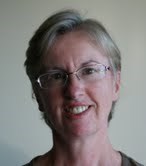Current attitudes toward religion increasingly seem to range between disinterest to disdain or disgust. It’s often associated with superstition, dogma, violence and polarization, with many good people jumping on the thumbs down bandwagon.
But bandwagons, meant to carry musical bands in parades and political rallies, don’t work well in complex territory. Finding the best route to a still unmapped future requires a longer view than just three houses down the road. So what’s the view from 30,000 feet on religion?
During the 6000 years of recorded history, the world’s religions – such as Hinduism, Buddhism, Judaism, Christianity, Islam, and most recently the Bahá’í Faith – have demonstrated their ability to bring enormous progress, particularly in the centuries of their first flourishing. The world over, these belief systems have consistently and successfully united people around common ideals, first in smaller groups, then regionally, then across the boundaries of many nations.
Our modern-day story is that religion has become a vehicle for behaviour that directly contradicts its original meaning and purpose. Vices that pre-date civilization, such as sexual abuse, tribalism and warmongering, have emerged cleverly disguised in virtuous garb, the proverbial wolf in sheep’s clothing.
A few questions need to be asked, though, before we decide to unceremoniously discard this long-standing feature of community life. For example, by what means will we promote the values and virtues needed to create a future in which we all thrive?
At the recent Wellness Conference in Victoria, Mayor Naheed Nenshi of Calgary, Khalil Shariff of the Aga Khan Foundation and moderator Mayor Lisa Helps, spoke on the subject of social well-being. An audience member asked about the role of religion. The big question, Shariff said, is how are religions going to change? What are their essentials and what are their accidentals? How will they give fresh, forward-thinking expression to the timeless ideas and ideals they’re grounded in, in order to respond to the current challenges of our times?
Despite any air of imperviousness to change, religion has always been capable of reinventing itself. It remains the source of the values that form the common ground of the world’s diverse societies. Those values were the inspiration for such key advances as the Universal Declaration of Human Rights and the basis of our legal and ethical systems.
Religions ought to inspire humble selflessness in high and low alike. ‘Abdu’l-Bahá, the son of the Founder of the Bahá’í Faith, lived his belief that “a religious individual must disregard his personal desires and seek in whatever way he can wholeheartedly to serve the public interest”, someone who “will for the sake of God abandon his own peace and profit and will freely consecrate his heart and soul to the common good”.
In these days of inflamed rhetoric and supposed clashes of civilizations, affirming our fundamental unity is essential. It allows us to appreciate our cultural differences. As Mr. Shariff and Mayor Nenshi agreed, those differences should be a source of joy and strength rather than a threat.
“Unity in Diversity”, now a popular concept in multicultural and multi-faith circles, is one of the foundational principles of the Bahá’í Faith. This coming year will mark the 200th anniversary of the birth of its Prophet-Founder, Bahá’u’lláh, born in 1817 in Iran. Bahá’u’lláh constantly spoke of the oneness of humanity and the need for renewal of religion. He would have loved nothing more than to hear Mayor Nenshi and Mr Shariff inspiring us to look at what unites us and believe in the power of community. He would encourage us to take the long view.
 Sheila Flood is a member of the Victoria Bahá’í community and helps organize the bi-monthly “Building the Future” series of public talks at the Cook St. Village Activity Centre. She is also the Secretary of the Victoria Multifaith Society.
Sheila Flood is a member of the Victoria Bahá’í community and helps organize the bi-monthly “Building the Future” series of public talks at the Cook St. Village Activity Centre. She is also the Secretary of the Victoria Multifaith Society.
You can read more articles from our interfaith blog, Spiritually Speaking HERE
* This article was published in the print edition of the Times Colonist on November 12 2016


